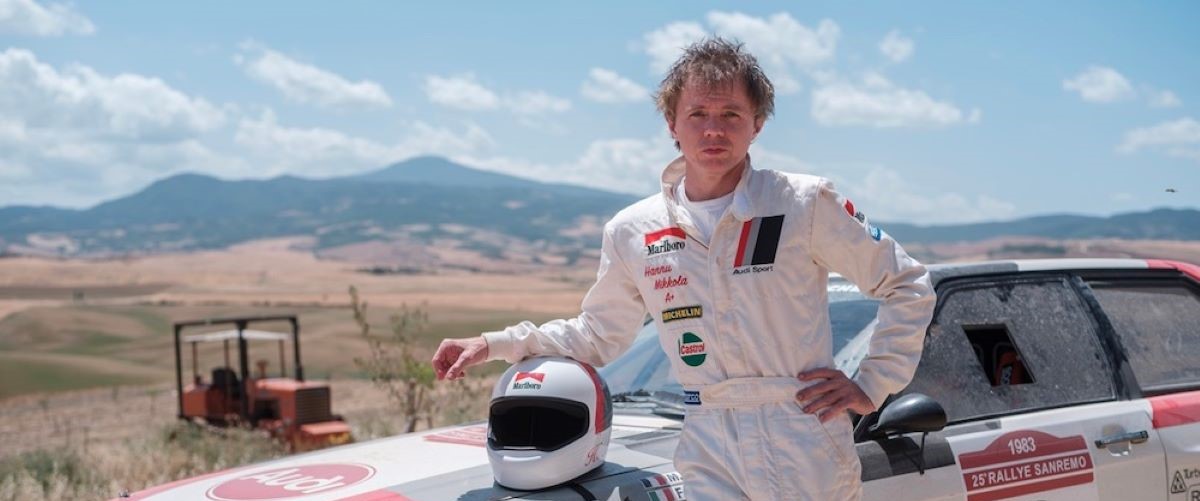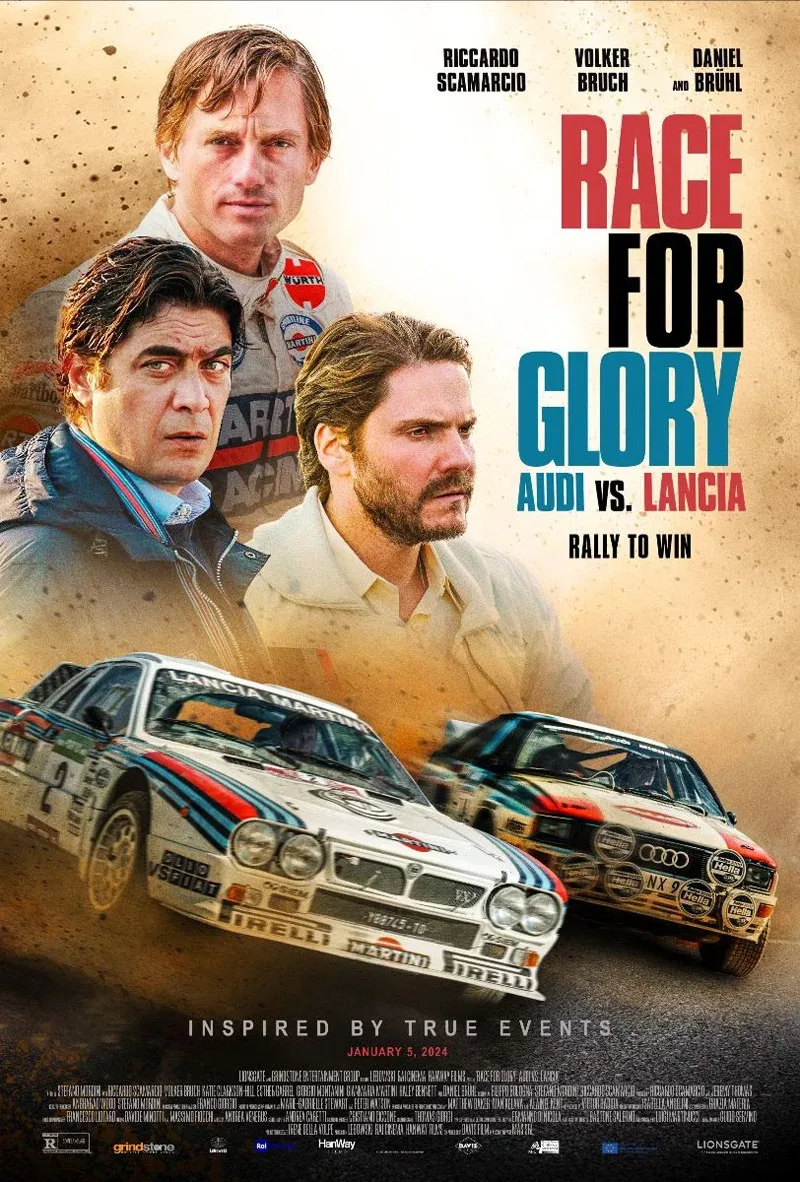Racing films aren’t often known for being mellow, but that’s the vibe of “Race for Glory: Audi vs. Lancia.” Somewhat loosely based on the rivalry between the two auto companies during the 1983 World Rally Championship, director Stefano Mordini’s movie is a “docudrama” type of production, making the most of what appears to have been a limited budget—at least compared to Michael Mann’s epic “Ferrari,” which unfortunately for these filmmakers preceded it in the marketplace, or for that matter “Rush” or the similarly titled “Ford v Ferrari.” It’s anchored by committed performances and fascinating details, but it never quite figures out how to lock the audience into whatever odd groove the storytellers have obviously decided to settle into.
Riccardo Scamarcio, best known in North America for playing the Italian crime lord in “John Wick: Chapter 2,” stars as Cesare Fiorio, the manager for Italy’s Team Lancia, funded by Fiat. They’re under intense pressure to win the WRC because the event has always been known as a terrific way to test and then sell new types of cars—but only when a team is victorious. Unfortunately, Team Lancia has sat out the last two races, and Fiat’s most formidable competitor, Audi—led by Roland Gumpert (Daniel Brühl)—has more funding and manpower, plus a technological edge: four-wheel drive cars that are a great asset in the varied terrain that WRC drivers travel through. But there isn’t enough time, money, or technical ability to catch up with the Germans before the series of races begin, so Team Lancia has to do the best it can with what it has.
Lancia’s main asset—according to this film, anyway—is Fiorio himself. As portrayed by Scamarcio, who also coproduced and cowrote the movie, Fiorio is an intense, stoic obsessive whose life revolves around winning. He has a trickster’s instincts, and is good at devising on-the-spot solutions to seemingly irresolvable problems, such as partially snow-covered roads (which would have put Lancia’s two-wheel drive cars at a disadvantage) or the requirement that car manufacturers entering the WRC have 200 prototype cars on hand to qualify (Lancia only has 103, and the race is happening the very next day). Fiorio’s solutions are ingenious enough that it would be unsporting to reveal them here. Suffice to say that he’s the sort of person who reads rulebooks carefully and notices what’s forbidden and what’s not mentioned.
“Race for Glory” falters in executing the expected beats of a racing film, such as depicting the creation of a team of quirky but passionate oddballs and helping us understand their psychologies. This is what you might call the low-hanging fruit of genre storytelling, from the sports picture to the heist movie, but a lot gets left on the vine here.
Take the scene where Fiorio goes looking for retired driver turned beekeeper Walter Röhrl (Volker Bruch) to get him on Team Lancia. It’s a beautiful example of how to tell audiences what’s happening without simply telling them what’s happening. The two have an entire conversation without Fiorio specifically asking him to come out of retirement and join the team, even though they (and we) know that’s the real point of the exchange. But after that, we never get a sense of whether the quietly flamboyant Röhrl (portrayed as sort of a 1970s Robert Redford hotshot) is worth the sum total of his maddening eccentricities (such as pausing mid-race to have a relaxed, lengthy conversation with a farmer). Nor do we get any insight into other odd aspects of his method, such as his refusal to participate in half of the rallies or his reasons for doing one rally but not another.
Jane McCoy (Katie Clarkson-Hill), a nutritionist hired by Fiorio to keep his team healthy, is treated even more glancingly. We never get a firm idea of her character at all, beyond the tragic weight of her driver father’s death in a race twenty years earlier. It’s nice that there’s no mandatory, forgettable love story between her and Fiorio, but there’s also nothing to replace it narratively. Fiorio hires Jane on impulse after he goes to a party feeling a bit under-the-weather, randomly meets her there, and takes her advice to order grog from the bartender. But we don’t get a sense of why he had such a powerful feeling about her suitability based on that one incident, much less what she brings to the team that any other qualified hire couldn’t have provided. Same with Röhrl and his racing, strangely: for all the tight closeups of his hyper-focused eyes while he’s driving, there’s no insight into what, precisely, he does behind the wheel that’s so special that it makes up for prima donna behavior that complicates Team Lancia’s logistics and staffing and costs them precious minutes.
Scamarcio’s performance as Fiorio is magnetic enough to carry the audience through to the end, and the integration of real-life documentary and TV news footage and re-creations is refreshingly low-fuss. The movie deserves credit for deciding not to lean too hard on what most other racing films do, and go at certain core elements obliquely or just omit them. But if you’re going to do that, you’ve got to replace the familiar stuff with something else that’s just as compelling but more daring. The movie probably needed to be a lot artier and more challenging or a lot more conventional to stand out. As is, it never rises above the level of a good try.




















